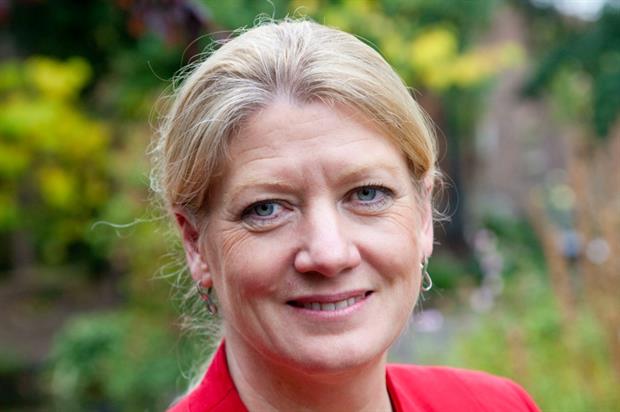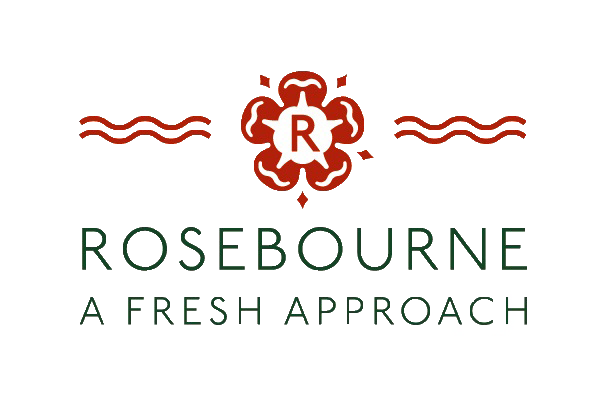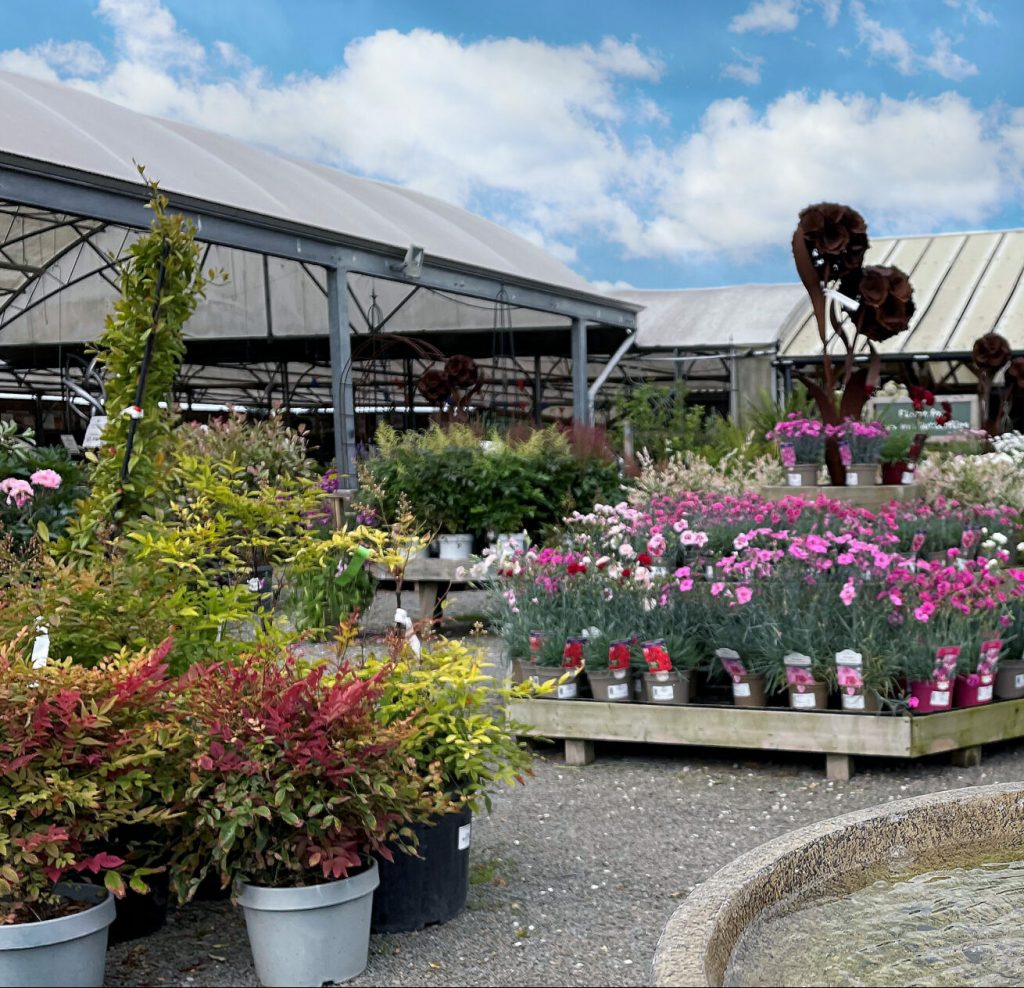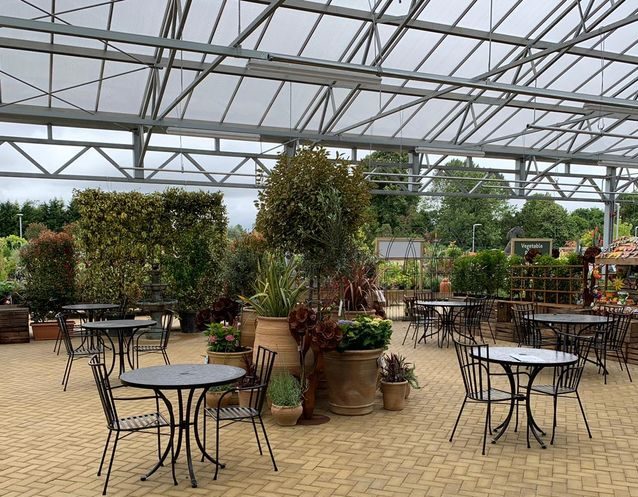View from the top
014min read
Chloe Metcalfe

Carol Paris was CEO of Rosebourne Nursery Group, which was bought by leading horticulture specialist, Hilliers Nurseries, in October 2022. Having worked with Puma Private Equity to develop the business during one of the most difficult trading environments in living memory, we asked Carol how she and her team navigated the pandemic, and why Rosebourne is close to her heart.
Carol, you’ve had an incredibly interesting career. Can you talk a little about your journey to launching Rosebourne?
I started my career as an equestrian. I’ve always loved horses and I wanted to do something where men and women compete as equals. Riding is pretty much the only sport where you compete as equals, and I quite liked the idea of that.
After a little while, I went to work as an equestrian professional for Harrods. I wasn’t really on the retail side, but I would go out doing saddle fittings and rug fittings. In those days we had the Royal Warrant for Prince Charles’s polo ponies, so the fantastic thing about my job was I had to go to polo every Saturday. I was asked if I wanted to advance my career at Harrods and take part in their graduate training scheme. I didn’t want to apply in the beginning because I loved going to watch the polo every Saturday. But to appease my boss I said I would apply. I was successful and ended up loving retail. Over the years I learnt a huge amount and worked my way up. I was then approached for the position of retail director for a garden centre chain. I have no idea where they got my name from – I knew nothing about plants. However, I did love the outdoors, and I also loved retail and providing people with a great retail experience.
Over time, I’ve developed a passion for buying and selling things and making money. At a garden centre, you don’t sell anything that people need to buy. You sell things they’d like to buy. People are coming to you in their leisure time, rather than having to come to you and purchase food or fuel. And leisure spending really seems to chime with me. I constantly want to make the experience better, and that’s where Rosebourne came in.

I wanted to provide a better garden centre experience that people wouldn’t get anywhere else. We weren’t interested in attracting people who wanted the cheapest bag of compost. We wanted to attract people that came for an afternoon out. We were asking people to drive out of town to come and see us, where they may have passed a number of alternative suppliers on the way. Rosebourne needed to have a broader appeal, so we based it around farm food shops, to give people a reason to keep coming regularly.
And did providing that kind of multi-layered retail environment provide additional challenges?
Absolutely. In a standard garden centre, people will come once a month. But if you’ve got a farm shop with a butcher and a deli, people come more often. You get repeat footfall, and once they are in the centre, they spend time looking around because they aren’t in a hurry. They may stop for a coffee and cake, and as it’s a very multi-generational environment, people can take their parents as well as their children. If they are coming in regularly, and there are lots of different people with lots of different interests, you need to have a broad and constantly refreshed product offer. It also needs to be of the same quality throughout the garden centre, so that the experience you get in the cafe is matched by the quality of gifts in the gift shop. We were always aiming for quality, where we weren’t the cheapest or the most expensive, but everything we offered had perceived value – and that can be challenging to keep finding an extensive range of products that matches that level.
We also wanted to offer products that were different, that people couldn’t find in the high street. They would come to Rosebourne because they knew they could always find a gift, and something that’s a bit different. We always looked for something that’s niche – preferably sustainable because if you’re shopping in a garden centre, you’re probably quite aware of your outdoor space and your planet as well.
You have a pretty laser-like focus on your customers. And when you look at the locations of the Rosebourne sites, they are in pretty specific areas of the country. Did you conduct a lot of profiling work to decide on those locations?
We conducted a large number of demographic surveys that demonstrated where we would find numbers of our target audience, to make a site of the size we were looking at work from a volume perspective. Our aim was always to offer the best product, and we needed to ensure that there was a big enough local population that could afford those products. The locations we chose were therefore based on available sized land to make the site work, and local target demographics. We also looked at locations where the local shopping was limited – where there wasn’t a plethora of shops in the high street. It’s why we discounted some other locations because we knew the local shopping was excellent. In Andover, for instance, where the Weyhill site is located, local shopping is pretty poor for high-quality, differentiated products.
Did you do a lot of research about your customers and what they were looking for?
I’m probably the Rosebourne core customer. And while it’s very dangerous as a buyer to only buy things that you like, you find yourself constantly challenging yourself and your team. Would I buy that? No, I wouldn’t want that in my house, so therefore my core customers wouldn’t either, and we shouldn’t stock it. We also used to do a lot of ‘back to the floor’ with our buyers at weekends because we always wanted to have first-hand access to what our customers were saying. I’m not the best horticulturist, but it takes just as much time and effort to dig a hole and put a bad plant in it, as it does to dig a hole and put a good plant in. We bought very little stock abroad. Although plants are much cheaper in Holland, they can’t survive in the conditions that we have in the UK, as they aren’t as hardy.

So if you want your customers’ plants to thrive, you have to source them locally, and not ones forced in a glasshouse abroad. This takes more time and effort – and is more expensive – but it’s the quality and experience that you want your customers to have. We never wanted customers to buy a plant and it not survive because it’s too cold. People will have spent the same amount of money and effort and blame themselves when it wouldn’t be their fault. I didn’t want our customers to waste their hard-earned money.
You managed Rosebourne through what must have been an utterly terrifying time as a retailer during the pandemic. Talk to us a little about that.
Well, we’d been open about a year at that point, and looking back I guess we were lucky in many ways. I’ve always treated our suppliers with the utmost respect and looked at them as our partners. They have no route to market without us, and we have no product without them. I absolutely don’t abide by the sort of attitude where retailers want to squeeze suppliers down to the tightest prices. It never leads to good outcomes and it’s never the most productive relationship. Sometimes the most important thing isn’t the prices, it’s the fact that the supplier will deliver. Especially when a buyer hasn’t ordered enough and you need an emergency delivery. Equally, if a supplier is sitting on an overstock, I’d like to think they’d get on the phone. Or if a crop had failed, we’d talk and work it out. Relationships with suppliers have to be one of equals. We are dealing with live products and things don’t always go to plan. Weather changes. Bulbs fail. Stuff happens. You have to work it through together.
So when the pandemic hit, I knew we’d need to all work together. However, the toughest thing was clearly the unknowns.
We closed the doors on Friday and it was the Mother’s Day weekend. We had 700 people booked for lunch on the Sunday and we’d got all the food delivered in preparation. We also had shelves full of Easter eggs, and we shut the doors. We knew a lot of the food would go out of date quickly, and we didn’t know how long at that stage we’d be closed for. We took all the food to the local women’s refuges, ambulance stations, and all sorts of local charities, as we wanted to do something positive with it. I was determined not to throw it all away.
And as the days and weeks start to roll in that initial period, we knew people still wanted to shop – they had time to spend in their gardens. But we had no trading website, we were all about the retail experience. So we worked and worked to come up with a plan and an alternative.
Like many businesses, most of our staff were furloughed, and it was literally me and a couple of other people who were permitted in the store to water the plants, or they would die. Only two people could be there at any one time, and we set to work – photographing plants and furniture and putting it all onto a basic website.
As we had the food halls, we started to think about what we could do. People were struggling to get out and get food, and we thought maybe we could deliver it to them. However, the best we could manage was a phone-in service, where you’d ask people what they wanted and then put it into the car and take it to them. I managed to build a relationship with a local taxi company that only did airport runs and asked them that since they weren’t now doing airport runs, would they fancy delivering for us.

Our customers were so grateful. I took one of the first deliveries out myself, as I wanted to see how this was going to work. I’d had a phone call from a lady in Essex whose mum lived nearby in Andover, and who was in her 80s. She had Covid and had no food in the house. We put a whole load of ready meals in the car and took them to her. I knocked on this lady’s door – and of course, we were all terrified of catching Covid at that stage. I put the box down and phoned the house, and she came to the door in tears. She had eaten nothing for two days. It meant so much to her and to her daughter that we’d helped her. Our customers didn’t forget this kind of thing.
In the second lockdown, we were incredibly fortunate to be classed as an essential trader. We had to spend a huge amount of time and money to develop the one-way system, and we couldn’t sell over the counter in the delis. Lots had to change. But we did what we could.
So, looking back on it now, is there anything you wish you’d known or you would have done differently?
I wish we hadn’t shut the doors in the first place. And if we had to do it again, I’d have got us back trading quicker. I would also have made sure we had an online trading site if I’d known how long we’d be shut for. We were terribly fortunate that we could open during the second lockdown. Though that brought its own challenges, with staff that didn’t want to or couldn’t work because they were shielding, and some had kids off school so they couldn’t work. We also lost a lot of stock because when we went into lockdown, it was all about young plants and hanging baskets, and when we came out, it was all about summer bedding. On top of that, you’re paying £50 for a liter of hand sanitiser gel, as there was none available and you had to provide it. Perspex became terribly difficult to get hold of, due to everyone trying to put up screens. There were so many new things to navigate, and it was long hours for everyone. But we pulled together, and we did it.
Looking back, were there any key traits you have as a leader that helped you through that time?
As a CEO, you are acutely aware of the need for the business to be a success – particularly when something like Covid happens. And to be fair, everybody in the company that was able to come in and help, did so. They all really wanted the business to succeed. So looking back, I think communication was absolutely key.
Remember when we’d all be glued to the television, watching what Boris said? I’d be watching every word and also be writing a newsletter to send out to 400 people telling them what the announcements meant for them and the business. I’d be clear about what we were going to do because that’s what people wanted. They wanted some degree of certainty. They wanted to be told what was happening. I also spent a huge amount of time talking to people about their own concerns; some people enjoyed being on furlough, and others hated it with a passion.
Do you think you have a very inclusive leadership style – is it important for you to be part of a team?

What I think is that as a team, you have to have flexibility, particularly if you want diversity and you want inclusion. You’ve got to be conscious of other people’s lives, and you can’t assume that everybody lives the same life that you do. And if people need to go and collect children from school, then you need to find a way to make that happen. Otherwise, those people won’t be able to work for you, as their lives won’t work. And that might mean you lose their skillset.
So if you want them to work for you, work with them to make it possible. Find out what they can do, as opposed to telling them what they can’t.
Most people want to enjoy the time they spend at work. They don’t want to go home thinking they’ve had a dreadful day, but it’s okay, they’ve been paid. If you make it impossible for people to work, you’re never going to get the best balance of skills, and in this day and age, you need a wide range of skills and talents around you.
Turning now to the sale of Rosebourne. What are you most proud of during your time there?
I think I’m most proud of what we built together. And I think once you’ve decided on a model, you need to stick to it and don’t let others sway your thinking. It’s always the case when you’ve got six people in the room, you’ve got seven opinions. You need to listen to those opinions and advice, but you need to keep true to what you were and are trying to achieve.
What makes you a different business and what is it that keeps your customers coming back?
I’m really proud of the people. While the change in ownership has meant that many have gone on to different roles and businesses, they’re all really happy and feel that they learned and developed during their time at Rosebourne, and it’s enabled them to get to the next level. That’s really important because your people are your most important asset.
“Customers don’t buy from buildings, they buy from people.”
I think it’s also worth saying that it’s really important to find someone that you can lean on for support. That might be your team members, or in my case, it was the people I worked with at Puma Private Equity. It can be lonely running a business, and you need people around you that you can bounce off. Puma was superb at that, and I spent a lot of time talking to them if I had an issue or needed a bigger picture perspective. Private equity investment can really add value to companies over and above the money.
Finally, what do you think this year has in store for UK plc?
Plenty of challenges, as there are still a lot of unknowns. We hadn’t expected inflation to be where it is. And in some businesses, that’s not necessarily a bad thing, as it can also lead to a rise in interest rates, which helps savers. And a lot of our customers in the garden centres are retired and rely on their savings. You really need to look at your business and understand where the risks are and work out how you can try your best to mitigate those risks.
With garden centres, we are competing for people’s leisure time and money. So when money’s tight, they might cut back, but then equally, they might use the money they would have used to go abroad to stay at home as it’s cheaper, and they might spend time in their garden. You have to look for the positives and the opportunities in business. You have to look at promotions and how you can offer better value when times are tougher. That’s what we need to do as UK plc. Focus on the opportunities and think about the future.




